More than listening
Some people will say, “Why pay someone to listen to you talk? That’s what friends are for.”
That makes perfect sense if your vision of therapy is a person with glasses and a notebook saying ‘Mmhmm’ while you vent. And that does take place in therapy sessions from time-to-time.
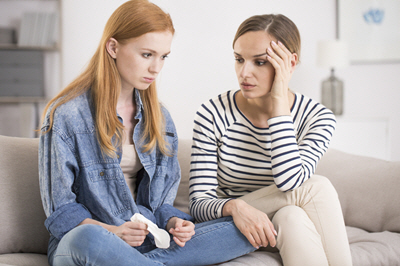 And while friends may support you when you vent, most people are very uncomfortable with people expressing more serious feelings like sadness, fear, or insecurity.
And while friends may support you when you vent, most people are very uncomfortable with people expressing more serious feelings like sadness, fear, or insecurity.
You say, “My dog died.” And they say, “They’re in a better place.”
You say, “I’m scared I’ll get fired and won’t be able to support my family.” And they say, “You’re great at your job; you’re worrying too much!”
You say, “I hate the way I look.” And they say, “You’re beautiful!”
And they mean well! They want to comfort you, alleviate the pain you’re having, by putting a positive spin on it.
But sometimes we just need our pain acknowledged.
It’s normal to be sad if your dog died. Someone telling you they’re in a better place unconsciously communicates that you shouldn’t be sad or at least shouldn’t talk about being sad. Shouldn’t dwell on the pain because that’s uncomfortable, and so you should just not feel sad.
But that doesn’t actually help a person not feel sad. It just makes them feel like they should put a lid on it because other people aren’t okay with you feeling that way around them.
I base my therapy around honoring your feelings.
If you need to be sad, I will sit with you and acknowledge that your sadness matters. That your anger is allowed. That your insecurity isn’t something that can be laughed off. That it makes sense to be scared sometimes.
Parts of Therapy
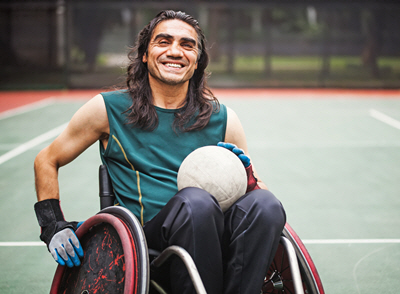 So what else is there to therapy if it’s not saying ‘mmhmm’?
So what else is there to therapy if it’s not saying ‘mmhmm’?
Learning skills
Most of us could use a good coping skill now and then, and they are not one-size-fits-all.
Some people benefit tremendously from body-based techniques like breathing exercises, yoga, regular exercise, or vigorous exercise when upset.
Other people respond well to thought-based practices like challenging negative thoughts, mentally walking through difficult situations, or imagining comforting scenarios.
Yet others do well with social-skill building and increasing their positive interactions time with others.
Using the skills
I work with you to find out what skills seem like they would benefit you most.
I help you practice them by doing the skill in session (like a breathing exercise), by role-playing the skill in a session (like how to handle conflict), or by building a plan for you to practice it during your week (like figuring out when you can attend a yoga class).
We will review if it ‘worked’ or has helped you. From there, we can either troubleshoot possible issues to improve the likelihood to it working next time. Or you can just let me know this doesn’t seem to be working for you, and we can figure something else out.
Healing what’s holding you back
People have baggage. And it can weigh you down, draining energy you’d like to spend on fun or more productive parts of your life.
It can cause you to act or react in ways that aren’t in your best interest – like pushing people away, avoiding things that would make your life better, or allowing bad situations or relationships to persist when you know it’s not good for you.
Nobody wants to be defined by these things that that have happened to us, yet you find it creeping into the most important and intimate parts of your life. You feel powerless to stop it.
I use EMDR therapy to help you process the things that are holding you back from living the life you want without feeling retraumatized or emotionally devastated afterwards.
A lot of people don’t even want to go there because they fear they’ll feel like they’ve been run over by an emotional steamroller if they confront these things.
 My number 1 priority when working on this tough stuff is keeping you emotionally safe.
My number 1 priority when working on this tough stuff is keeping you emotionally safe.
Before we even touch on the hard parts, I will teach you calming exercises and skills so that you learn how to get back to emotional safety in session when you need it – and in your everyday life.
I’ve done this kind of work myself. The comfort of knowing you can stop the terrifying and overwhelming feelings is monumental.
It’s like having an antidote to fear.
Fear that has been holding you back – holding your life back.
Together, at your pace, we will use EMDR techniques that neutralize your deepest, darkest, most difficult parts and build up feelings of safety.
I know it sounds too good to be true.
It isn’t.
I can help you get to the other side.
Practicing a healthy relationship
 Humans are innately social. It’s built into our DNA (literally) to build lives and societies interdependent with each other. In the broad US culture, we fiercely value independence, but the flip side of that is social isolation.
Humans are innately social. It’s built into our DNA (literally) to build lives and societies interdependent with each other. In the broad US culture, we fiercely value independence, but the flip side of that is social isolation.
This causes many of us to not know how to feel uncomfortable having healthy, emotionally intimate relationships. Many of us have relationships with our partners or family members, but there is often a level of insecurity, distance, or general disfunction involved because having intimate relationships is hard.
The corrective experience
If you find yourself in unsatisfying or dysfunctional relationships (friends, family, work relationships, community relationship, or romantic partners) over and over again, you likely need some help learning how to have a healthy emotionally intimate relationship.
If this is the case, having a healthy emotionally intimate relationship with your therapist can be a corrective experience.
You’ll be able to practice having an intimate relationship with a person who is emotionally stable and understands that you’ve got some baggage that might be influencing the way you have relationships with people.
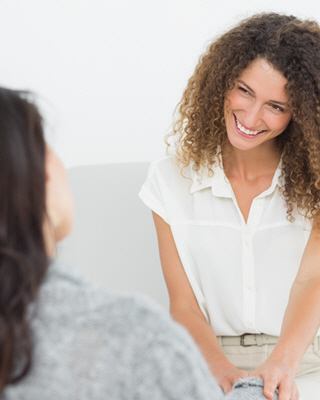 I promise to treat you with respect, to honor your feelings, and to set healthy boundaries to show you what a healthy relationship feels like. This sets you up to learn how it feels to be part of a safe dynamic. It is a core part of therapy.
I promise to treat you with respect, to honor your feelings, and to set healthy boundaries to show you what a healthy relationship feels like. This sets you up to learn how it feels to be part of a safe dynamic. It is a core part of therapy.
It’s normal for ‘stuff’ to come up on your end. Suspicion, distancing, vulnerability, anger, sadness. It’s part of reconciling the kind of relationships you’ve been having in your life and a healthy relationship. It’s like the relationships you’ve been having are a square peg, and healthy relationships are a round hole. There’re some growing pains.
I will be there for you every step of the way. Educating you, forming a genuine bond with you, processing feelings that arise
Our relationship can become a blueprint for the other relationships in your life.
My Journey
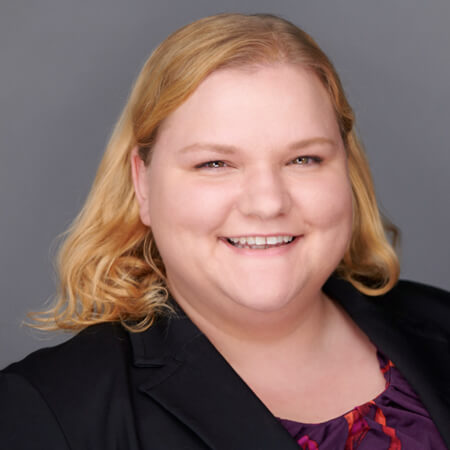 It sounds cheesy, but I’ve always been that friend people go to when they need a shoulder to cry on. In high school, I would spend afternoons and evenings with friends talking about romantic troubles, conflict between friends, difficulties at school, and family problems.
It sounds cheesy, but I’ve always been that friend people go to when they need a shoulder to cry on. In high school, I would spend afternoons and evenings with friends talking about romantic troubles, conflict between friends, difficulties at school, and family problems.
The serious stuff seemed to only come out late at night.
I stayed up until the early hours of the morning countless times as friends disclosed dealing with depression, eating disorders, drug use, sexual assault, self-harm, or suicidal thoughts.
My life was consumed by other peoples’ issues. I unconsciously sought out and nurtured relationships where I was the emotional caretaker. It felt good to be needed, to feel like I was helping other people.
I got so invested in their lives I felt like I had no room left for my life.
It wasn’t healthy.
I couldn’t set boundaries – like needing to go to bed at a decent hour, or just spending my evenings doing something enjoyable, rather than tending to everyone else’s emotional emergencies.
I enjoyed helping people, but I also felt exhausted from tending to other people’s needs all the time.
When I went to college, many friendships slowly faded as we were geographically apart. Thus, I was able to reduce the amount of emotional caretaking I did in my new relationships. It was still there, and I still had a hard time setting boundaries – but it didn’t feel like my life was consumed anymore, which was a huge relief.
When I became active in my college’s theater department, I had no idea that the acting exercises and scenes I engaged in set a foundation of skills I would eventually use as a therapist. How to feel comfortable having a level of intimacy with new people as we did scenes together. How to be aware of how body language, word choice, facial expression, and tone of voice shape interactions between people.
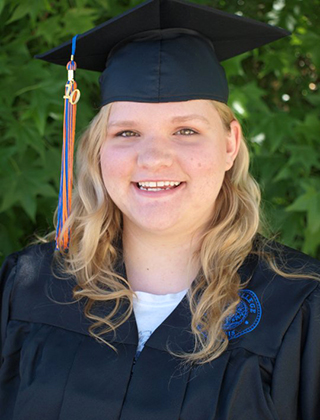 During college I didn’t think I could be a therapist.
During college I didn’t think I could be a therapist.
Because therapists had to go to grad school, and I didn’t think I could handle it. I was the first person in my family to go to college and getting a bachelor’s degree was already a pretty big deal for me. My family was working class, and I had to navigate the landscape of scholarships, grants, and student loans on my own.
I had been told that having a college degree was the key to a better life. Just get the degree and the rest will follow. I knew I wanted to do something where I worked with people and helped them, but it was an amorphous idea for most of my time at college.
As graduation with my Bachelor’s Degree in Sociology neared, I started having to think about real jobs and a career path for myself.
I realized that the only career that really fit me was being a therapist.
And if that meant going to grad school, then I had better start applying.
I was so thankful when I was accepted to my first choice, Cal State Fullerton. It was one of only seven programs in California to be CACREP accredited in Clinical Mental Health at the time, the gold standard for counseling programs. It’s a fantastic program that I highly recommend.
Over the course of the program and my practicum placement at The LGBT Center, OC I had a realization. All my life up until that point I had been helping others without setting any boundaries for myself. I let myself get taken advantage of. But that’s not how being a therapist works at all.
To be a therapist I had to set healthy boundaries.
It supports healthy relationships between therapist and client. It models healthy behaviors to clients. And it prevents burnout – which would eventually keep me from helping anyone effectively.
To help me with this I went to my own therapy. I found that I couldn’t set boundaries because I was intensely conflict averse. And I avoided conflict at all costs because I wanted to be liked by everyone all the time. Which, by the way, isn’t just an unhealthy aspiration, it’s impossible to achieve.
It is impossible to overstate how doing my own therapy helped me become a better therapist.
It also wasn’t too shabby for the rest of my life, too. By unpacking my core belief of ‘being liked by everyone all the time = I’m a good person’ I was slowly able to change my thoughts and actions.
My first priority in therapy with my clients is still to help you feel heard, understood, and respected.
But now if a client is initiating conflict in session, I can handle it. I don’t take it personally. And that lets me keep my therapist brain turned on instead of being overwhelmed by my people-pleaser brain.
Before I felt like I was always working so hard. That if I was just nice enough, did enough favors, or stayed up enough nights, then others would like me. But that puts my sense of worth in their control. I could do everything ‘right’ and still get rejected by them – and then feel horrible about myself.
With my own therapy, I was building the core belief that ‘I am an innately good person’ regardless if other people are happy with me that day. It’s really nice.
I earned my master’s degree in Counseling, and now I’m a Licensed Marriage and Family Therapist.
Get You Where You Want To Be
Just as I’ve shared my journey with you, I’d love to accompany you on your journey.
You have it inside you to become a better version of yourself and live the life you want; you just don’t know how.
Therapy gives you the knowledge and experiences to move forward, so you can start that next chapter in your life where you really hit your stride and things start going your way.
Call me today at (714) 584-9018.

